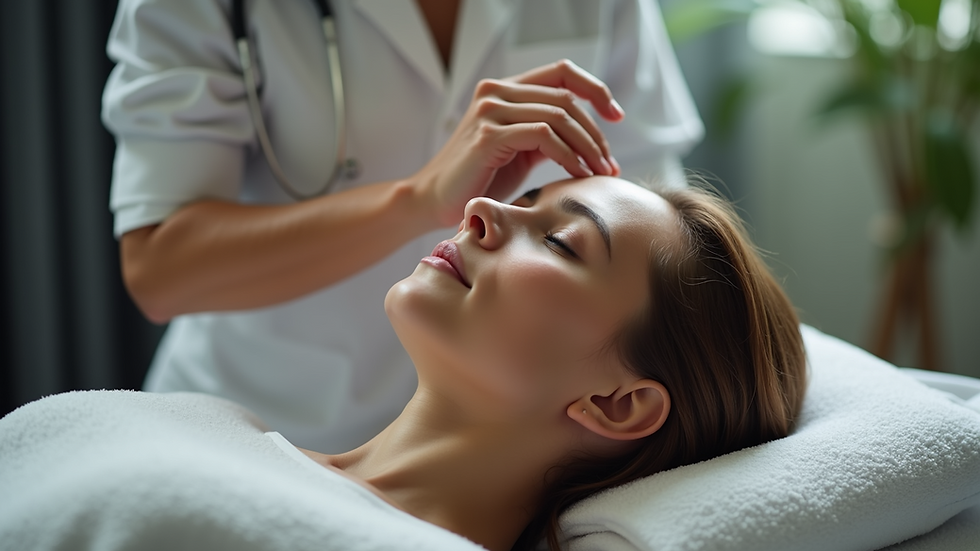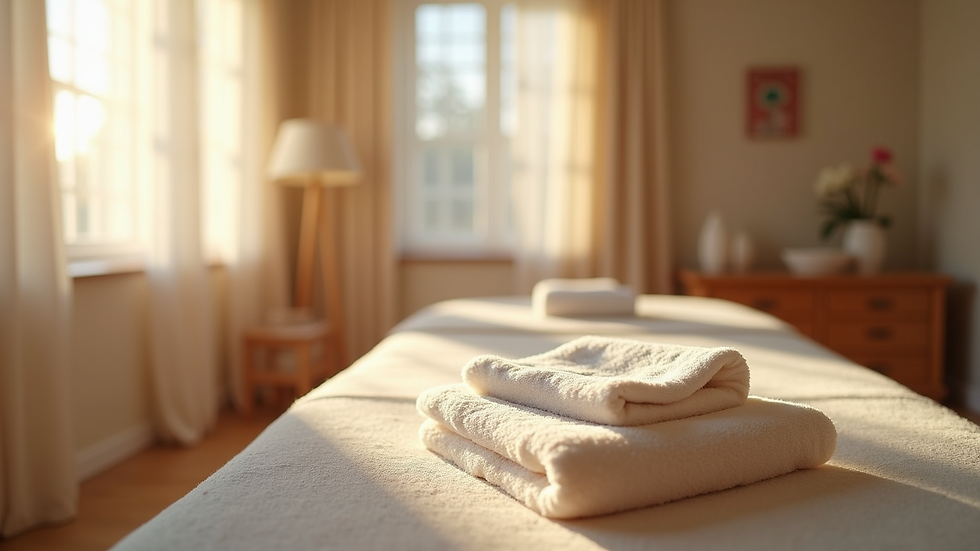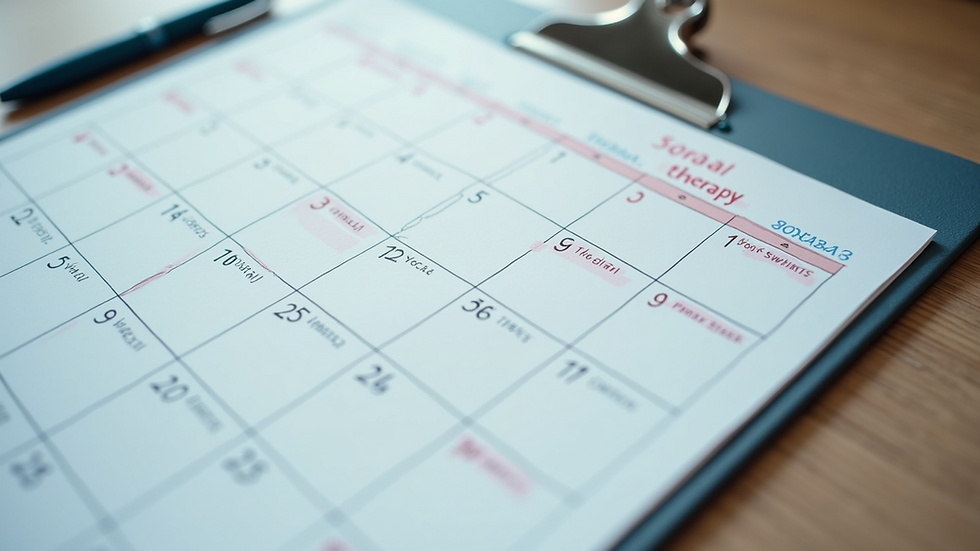Understanding the Benefits and Advantages of Craniosacral Therapy
- Admin - Kerry Heritage
- Aug 4, 2025
- 4 min read
Craniosacral therapy is a gentle, hands-on technique that focuses on the craniosacral system, which includes the membranes and fluid surrounding the brain and spinal cord. This therapy aims to improve the functioning of the central nervous system by releasing tension and promoting balance within the body. Many people seek craniosacral therapy for relief from various physical and emotional conditions. In this article, we will explore the advantages of craniosacral therapy, how it works, and practical advice on incorporating it into your wellness routine.
What Are the Advantages of Craniosacral Therapy?
Craniosacral therapy offers a range of benefits that can enhance overall health and well-being. Here are some of the advantages of craniosacral therapy:
Pain Relief: It can help alleviate chronic pain conditions such as migraines, neck pain, and back pain by reducing tension in the craniosacral system.
Stress Reduction: The gentle touch used in this therapy promotes deep relaxation, which helps lower stress levels and improve mood.
Improved Sleep: Many individuals report better sleep quality after sessions, as the therapy helps calm the nervous system.
Enhanced Immune Function: By supporting the nervous system, craniosacral therapy may boost the body’s natural ability to heal and defend against illness.
Emotional Balance: It can assist in releasing emotional trauma and tension stored in the body, leading to improved mental clarity and emotional stability.
These advantages make craniosacral therapy a valuable complementary approach for those seeking holistic health improvements.

How Does Craniosacral Therapy Work?
Craniosacral therapy involves a practitioner using light touch to assess and release restrictions in the craniosacral system. The process typically includes:
Assessment: The therapist places their hands lightly on the head, neck, or back to feel the rhythm of the craniosacral fluid.
Detection of Restrictions: They identify areas where the flow of fluid or movement of membranes is restricted or imbalanced.
Gentle Manipulation: Using subtle pressure, the therapist encourages the release of tension and restoration of normal movement.
Body Response: The body responds by relaxing deeply, allowing the nervous system to reset and heal.
This therapy is non-invasive and suitable for people of all ages, including infants and the elderly. It is often used alongside other treatments to support recovery and enhance well-being.

How Often Should You Do Craniosacral?
The frequency of craniosacral therapy sessions depends on individual needs and health goals. Here are some general guidelines:
Initial Phase: For acute conditions or significant stress, weekly sessions for 4 to 6 weeks are often recommended.
Maintenance Phase: After initial improvements, sessions can be spaced out to once a month or as needed to maintain balance.
Chronic Conditions: People with chronic issues may benefit from ongoing sessions every 2 to 4 weeks.
Preventative Care: Some individuals choose occasional sessions to support overall health and prevent future problems.
It is important to communicate openly with your therapist about your progress and any changes in symptoms. They can tailor the treatment plan to suit your specific situation.

Practical Tips for Maximising the Benefits of Craniosacral Therapy
To get the most out of your craniosacral therapy sessions, consider the following recommendations:
Stay Hydrated: Drinking plenty of water before and after sessions helps flush out toxins released during therapy.
Rest and Relax: Allow yourself time to rest after treatment to support the healing process.
Maintain Good Posture: Practice good posture habits to reduce strain on the craniosacral system.
Combine with Other Therapies: Complement craniosacral therapy with practices like yoga, meditation, or physiotherapy for holistic care.
Communicate Clearly: Share your symptoms and feedback with your therapist to ensure the treatment is effective and comfortable.
By following these tips, you can enhance the positive effects of craniosacral therapy and support your overall health journey.
Exploring the Science Behind Craniosacral Therapy
While craniosacral therapy is widely used, it is important to understand the scientific perspective. Research on this therapy is ongoing, with some studies showing promising results in pain relief and stress reduction. The therapy’s focus on the nervous system aligns with current knowledge about how gentle touch can influence brain function and emotional regulation.
Sceptics argue that more rigorous clinical trials are needed to fully validate the therapy’s effectiveness. However, many patients report subjective improvements in their symptoms and quality of life. As with any complementary therapy, it is advisable to use craniosacral therapy as part of a broader health plan and consult healthcare professionals when necessary.
For those interested in learning more about the specific craniosacral therapy benefits, visiting reputable sources and speaking with qualified practitioners can provide valuable insights.
Craniosacral therapy offers a gentle and holistic approach to improving physical and emotional health. Its advantages include pain relief, stress reduction, and enhanced immune function, making it a popular choice for many seeking natural healing methods. By understanding how it works and integrating it thoughtfully into your wellness routine, you can experience the full potential of this unique therapy.
Consider booking your Cranoscaral Therapy session for yourself and see how your physical & emotional health can benefit.
29 Jetty Road
BRIGHTON South Australia 5048
0422745027








Comments